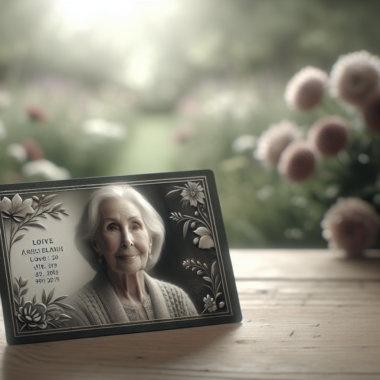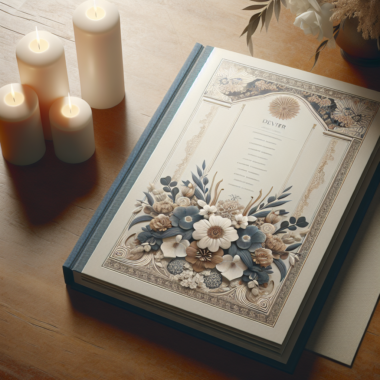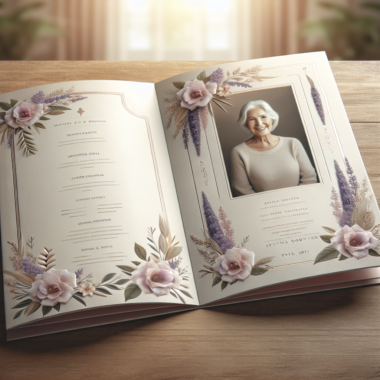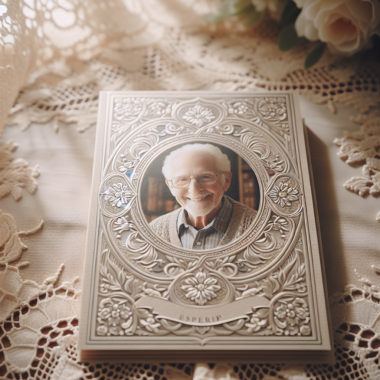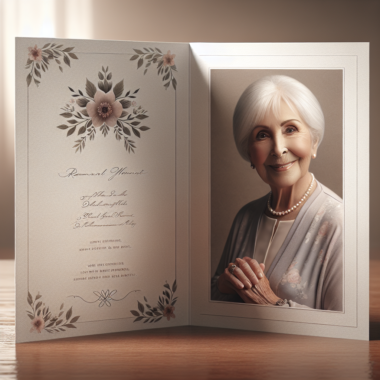Funeral cards, also known as memorial cards or prayer cards, are an important element in many funeral traditions and serve multiple purposes in the grieving process. These small, personalized cards typically feature a photograph of the deceased, their name, dates of birth and death, and often include a meaningful quote or prayer. They are usually distributed to attendees at funeral or memorial services.
The primary function of funeral cards is to provide a tangible memento of the deceased for family members and friends. They serve as a lasting reminder of the individual’s life and legacy, offering comfort to those in mourning. The process of creating these cards can also be therapeutic for the bereaved, allowing them to reflect on cherished memories and the impact of their loved one’s life.
Funeral cards also play a practical role in communicating information about the deceased to a wider circle of acquaintances and extended family members who may not have been able to attend the funeral service. In this way, they serve as both a notification of passing and a keepsake for those who knew the deceased. These cards have become an integral part of funeral customs in many cultures, providing a physical object that mourners can keep and refer to in the years following their loss.
The enduring nature of funeral cards allows them to serve as a focal point for remembrance long after the funeral service has concluded.
Key Takeaways
- Funeral cards serve as a tangible reminder of a loved one’s passing and provide information about the funeral service.
- Designing funeral cards should reflect the personality and interests of the deceased, and can include photos, quotes, and meaningful symbols.
- Personalizing funeral cards with unique details such as favorite colors, hobbies, or personal mementos can make them more meaningful for loved ones.
- Choosing the right words for funeral cards involves expressing condolences, sharing memories, and offering support to the bereaved.
- Sharing funeral cards with loved ones can provide comfort and support, and can be done through physical or digital means.
Designing Funeral Cards
Visual Elements
The choice of colors, fonts, and imagery should all be carefully considered to create a design that is both visually appealing and emotionally impactful. Many people choose to include a photo of the deceased on the front of the card, along with their name and dates of birth and death.
Content and Layout
The back of the card may feature a meaningful quote, prayer, or poem that holds significance to the deceased and their loved ones. In addition to the visual design, the layout and format of the funeral card should also be carefully considered. The size and shape of the card, as well as the choice of paper stock, can all contribute to the overall impact of the design.
Personalized Touches
Some people may choose to include additional elements such as religious symbols, floral motifs, or other personalized touches that hold special meaning to the deceased and their family. Ultimately, the goal of designing funeral cards is to create a meaningful and lasting tribute to the life of the departed loved one.
Personalizing Funeral Cards
Personalizing funeral cards is an important part of creating a meaningful tribute to the deceased. There are many ways to add personal touches to funeral cards, from including meaningful quotes or prayers to incorporating symbols or imagery that hold significance to the deceased and their loved ones. Some people may choose to include a favorite poem or song lyric that holds special meaning, while others may opt for a religious verse or prayer that reflects the spiritual beliefs of the deceased.
In addition to adding meaningful words and imagery, personalizing funeral cards can also involve choosing a design that reflects the personality and interests of the deceased. For example, if the deceased had a love for nature, the design may incorporate floral motifs or natural imagery. If they were a devout believer, religious symbols or verses may be included.
Personalizing funeral cards allows for a unique and heartfelt tribute that honors the life and legacy of the departed loved one in a deeply personal way.
Choosing the Right Words for Funeral Cards
| Words for Funeral Cards | Importance |
|---|---|
| Comforting phrases | Provide solace to the bereaved |
| Personalized messages | Offer support and empathy |
| Memorable quotes | Bring inspiration and reflection |
| Religious verses | Provide spiritual comfort |
Choosing the right words for funeral cards is an important aspect of creating a meaningful tribute to the deceased. The words on the funeral card should be thoughtful, heartfelt, and reflective of the life and spirit of the departed loved one. Many people choose to include a meaningful quote, poem, or prayer that holds significance to the deceased and their family.
Others may opt for a personalized message that conveys their love and memories of the departed. When choosing the right words for funeral cards, it’s important to consider the emotional impact that they will have on those who receive them. The words should offer comfort and solace to grieving family and friends, while also serving as a lasting tribute to the life of the deceased.
It’s important to take the time to carefully consider the words that will be included on the funeral card, ensuring that they accurately reflect the personality, beliefs, and spirit of the departed loved one.
Sharing Funeral Cards with Loved Ones
Sharing funeral cards with loved ones is an important part of the grieving process. Funeral cards serve as a tangible reminder of the life and legacy of the deceased, offering comfort and support to those who are mourning. By sharing funeral cards with family and friends, mourners can come together to honor and remember the life of their departed loved one, finding solace in their shared memories and experiences.
In addition to providing comfort and support, sharing funeral cards with loved ones also serves as a way to inform friends and extended family members of the passing. Funeral cards can be distributed at the funeral or memorial service, or they can be sent out in the mail to those who were unable to attend. By sharing funeral cards with loved ones, mourners can ensure that their departed loved one’s memory lives on in the hearts and minds of those who knew them.
Funeral Card Etiquette

Distributing Funeral Cards at the Service
Funeral cards are typically distributed at the funeral or memorial service, where they can be handed out to mourners as they arrive or placed on a table for guests to take as they leave.
Sending Funeral Cards in the Mail
In addition to distributing funeral cards at the service, it’s also common to send them out in the mail to friends and extended family members who were unable to attend. When sending out funeral cards in this manner, it’s important to include a personalized note or message expressing condolences and informing them of the passing.
Considering Cultural and Religious Customs
It’s also important to consider cultural and religious customs when it comes to funeral card etiquette, ensuring that they are distributed in a way that is respectful and appropriate for all mourners.
Alternative Uses for Funeral Cards
While funeral cards are traditionally distributed at funeral or memorial services, there are also alternative uses for these meaningful mementos. Some people choose to display funeral cards in their home as a way to honor and remember their departed loved one on a daily basis. They may be placed in a special frame or album, serving as a lasting tribute that can be cherished for years to come.
In addition to displaying funeral cards in the home, some people may choose to incorporate them into other memorial tributes such as scrapbooks or memory boxes. By including funeral cards in these personalized keepsakes, mourners can create a meaningful collection of memories and mementos that honor the life and legacy of their departed loved one. Ultimately, there are many alternative uses for funeral cards that allow mourners to continue honoring and remembering their departed loved one in a deeply personal way.
 Free Shipping Over $50
Free Shipping Over $50  888-432-8363
888-432-8363


 Obituary/Programs
Obituary/Programs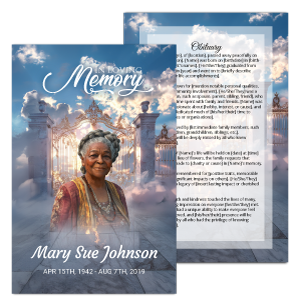 No-Fold Memorial Programs
No-Fold Memorial Programs 4 Page Funeral Programs
4 Page Funeral Programs 8 Page Memorial Programs
8 Page Memorial Programs 12 Page Funeral Programs
12 Page Funeral Programs 16 Page Funeral Programs
16 Page Funeral Programs 20 Page Funeral Programs
20 Page Funeral Programs Tri-Fold Funeral Programs
Tri-Fold Funeral Programs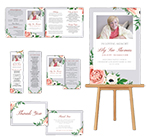 Complete Memorial Packages
Complete Memorial Packages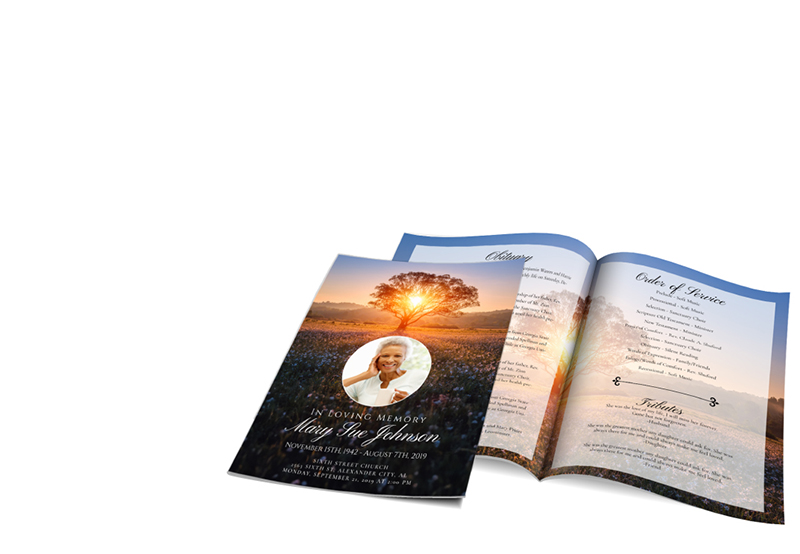
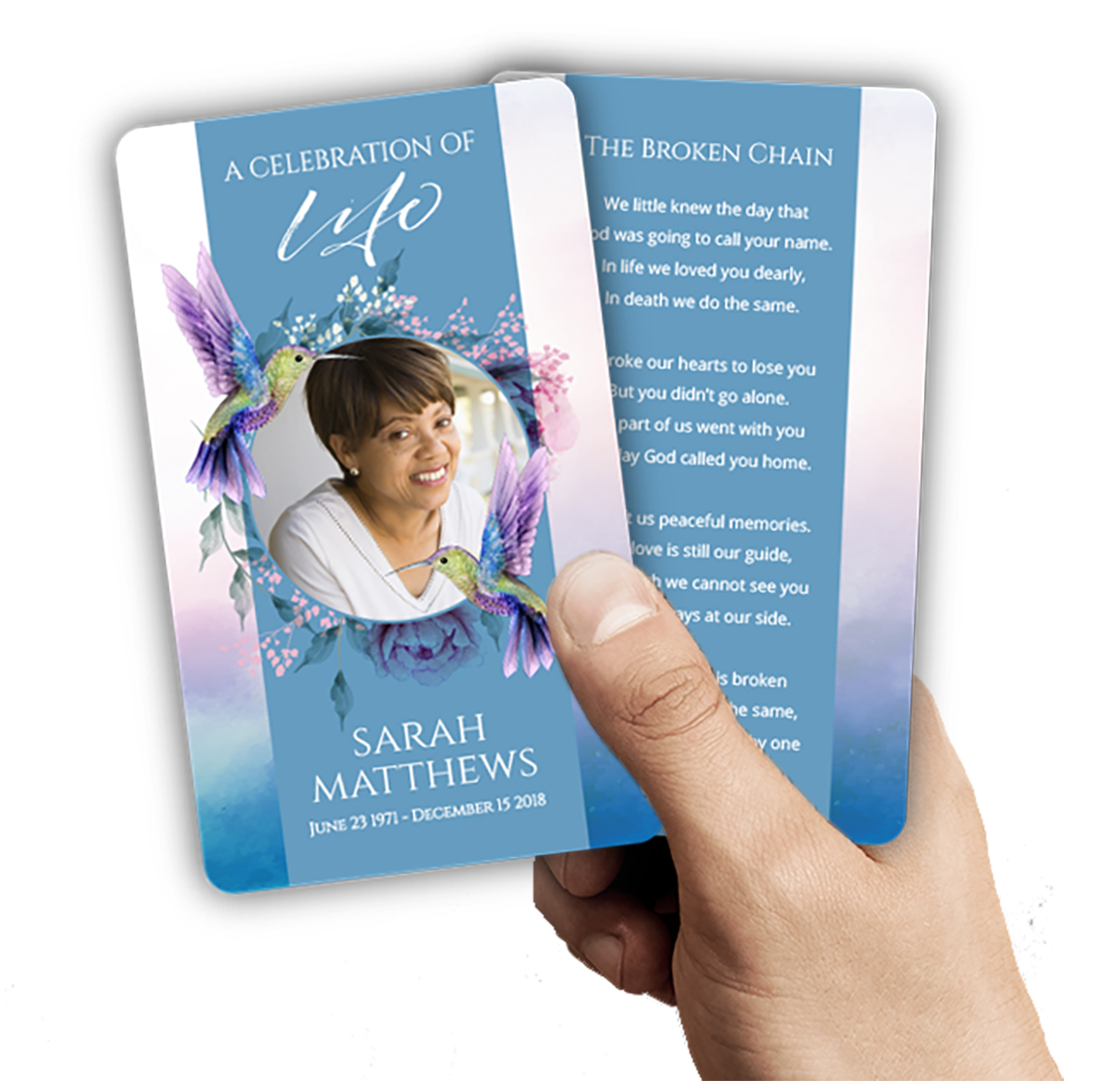 Cards & Bookmarks
Cards & Bookmarks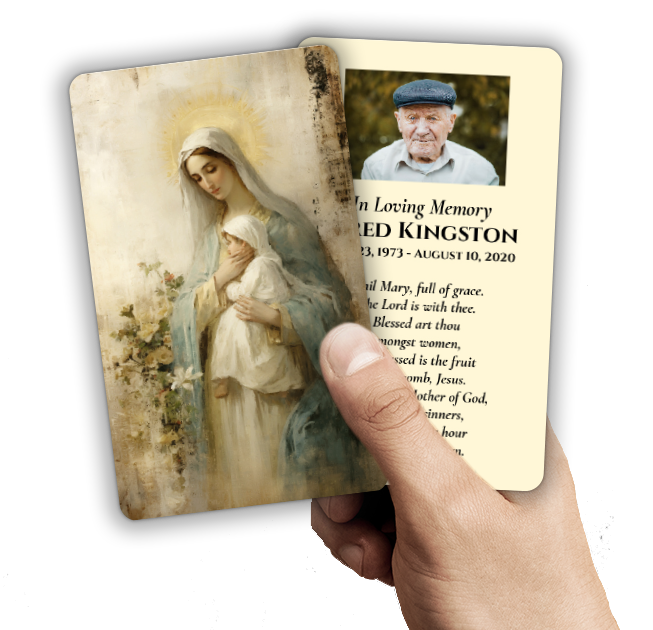 Saint Prayer Cards
Saint Prayer Cards Folded Memorial Cards
Folded Memorial Cards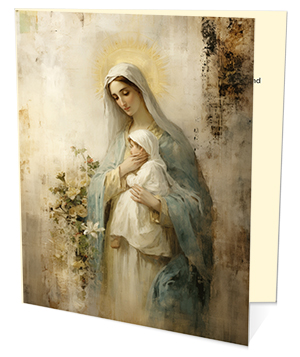 Folded Holy Cards
Folded Holy Cards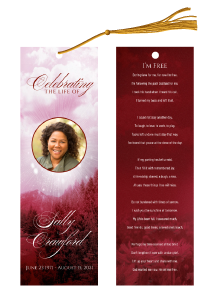 Memorial Bookmarks
Memorial Bookmarks Thank You Cards
Thank You Cards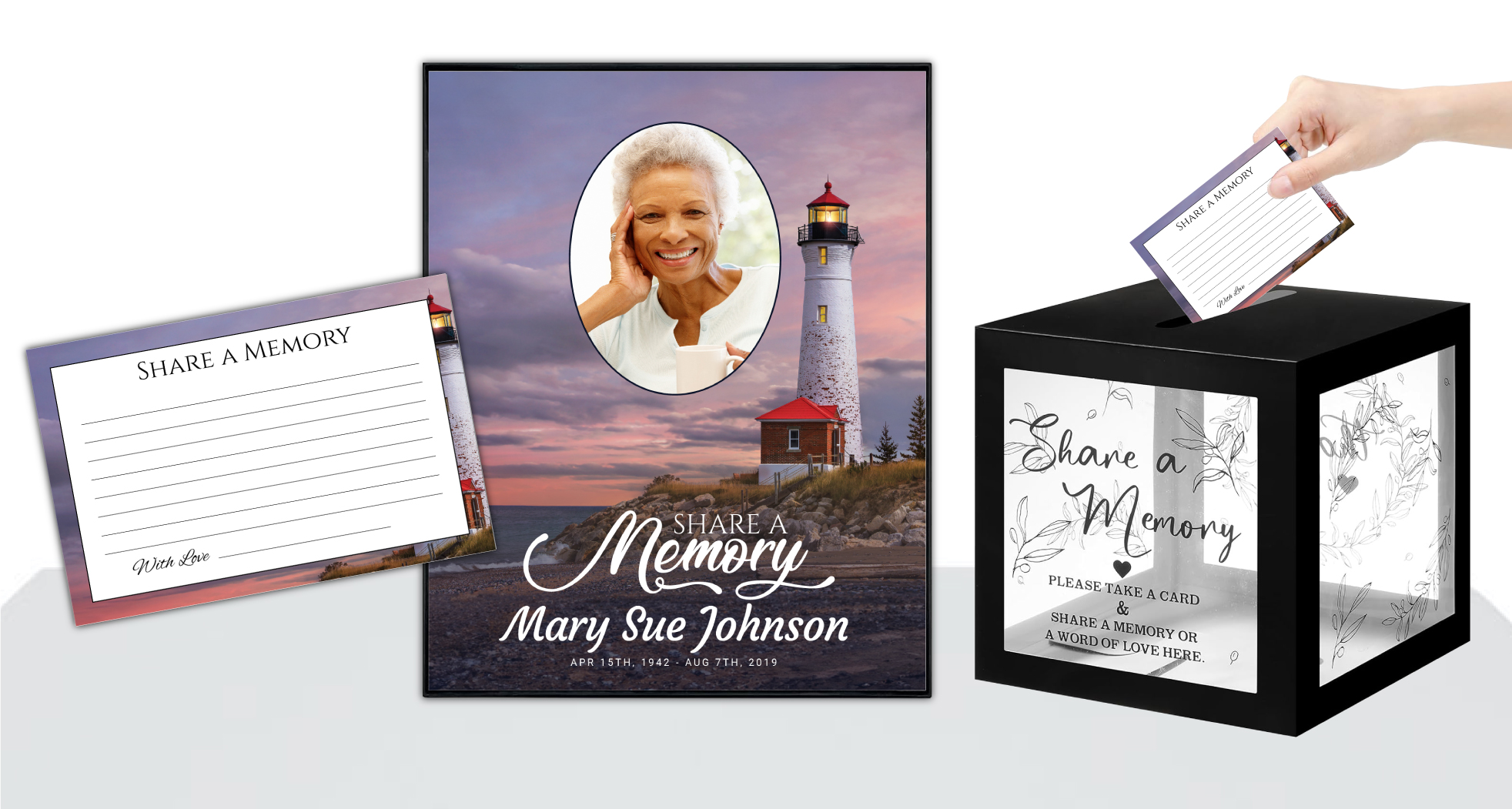 Share-A-Memory Cards
Share-A-Memory Cards Memorial Magnets
Memorial Magnets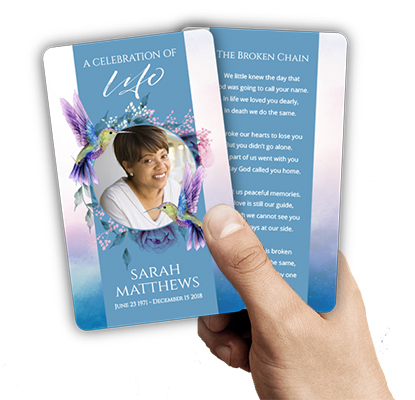
 Memorial Posters
Memorial Posters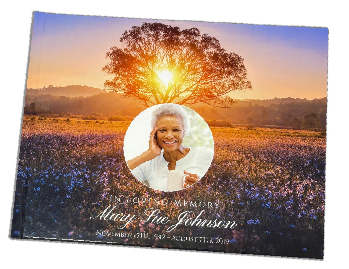 Guest Books
Guest Books Slide Shows
Slide Shows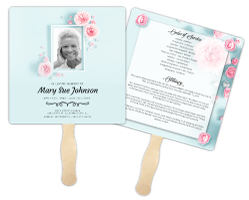 Memorial Fans
Memorial Fans Death Announcements
Death Announcements Take Away Keepsakes
Take Away Keepsakes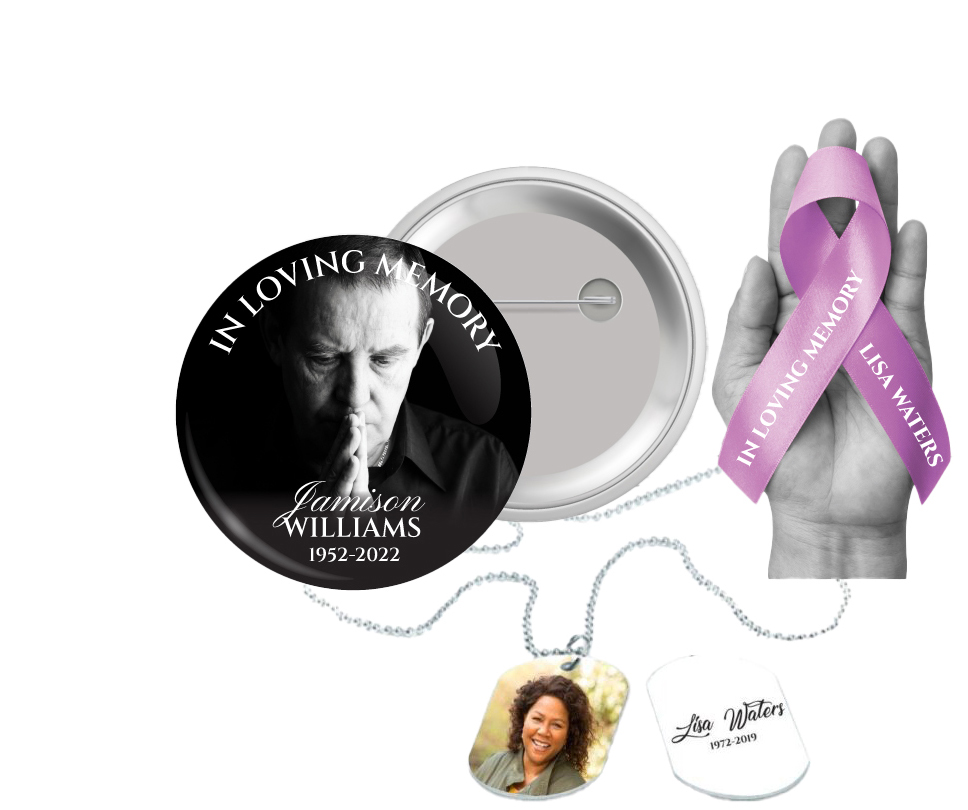
 Church Products
Church Products

